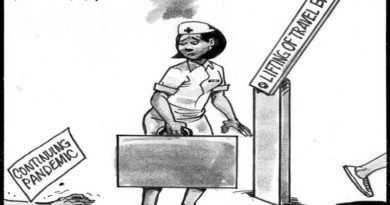City Hall must mend its ways
OP-ED: City Hall must mend its ways
.
SINGAPORE’S
The Straits Times
..
The upcoming launch of a citizens’ panel on improving work-life harmony is lent a measure of urgency by recent data from the Manpower Ministry showing that in 2017, Singaporeans worked an average of 45.1 hours per week, or 2,345.2 hours that year. This figure is higher than that in places characterised by their exacting overtime culture, such as Japan and South Korea, according to the Organisation for Economic Cooperation and Development (OECD). While long working hours might have been a necessity when East Asian nations went into overdrive to catch up economically with the developed world, these same countries need to moderate the pace of work to build sustainable societies today.
At the end of the day, societies have to be mindful about how to pursue growth, especially if it leaves families neglected and adults at the risk of karoshi, the Japanese word for death from overwork. While Singapore has been spared the worst of such dislocations, it needs to plan its own transition to a work culture that also protects society better by protecting the family in the first place. To do so would require a genuine shift in attitude among both employers and employees. The former must understand – many employers do, but not all – that raw time spent at work does not equate with productivity. What matters is how well that time is used, how far it contributes to a firm’s addition of value to a product, and how employees return to work refreshed and reinvigorated by sufficient time for rest. A human’s capacity for productive labour is not infinite. But that capacity can advance a company’s long-term interests if it is not stretched to its limits day after day. Flexible arrangements, wherever feasible, offer a family-friendly alternative to rigid laws of work.
TO READ THE FULL ARTICLE:
https://www.straitstimes.com/opinion/st-editorial/keeping-work-home-families-in-focus
—————–
ADS by Cloud 9:
.
– SPACE RESERVE FOR YOUR ADVERTISEMENT –
.

–THIS SPACE BELOW IS RESERVE FOR YOUR ADVERTISEMENT –


THAILAND’S BANGKOK POST
EDITORIAL:
City Hall must mend its ways
Falling into a manhole. Getting hurt by a construction crane. Suffering floods in the rainy season. These recent incidents are just part of a never-ending series of urban stories which reflect how Bangkok residents risk their safety and compromise their well-being on a daily basis, thanks to negligence and lax law enforcement by City Hall.
Unless officials at the Bangkok Metropolitan Administration (BMA) change their mindset and attitude to the way they work, city folk can always expect unsafe and unpleasant experiences to take place.
Jetnipit Photkaew, 23, was the latest victim of the BMA’s carelessness. On Tuesday, she accidentally fell through a broken manhole cover into three-metre-deep, polluted water in a sewer shaft in Huai Khwang district while she was walking along the pavement.
She was injured and almost submerged in the sewer water before being pulled out by bystanders.
After her story went viral, the manhole suddenly had a new cover within a day. If there had been no accident, how long it would have been left unfixed?

The BMA said it has received more than 750 complaints on its 1555 hotline about accidents and “safety issues” concerning manholes over the past two years.
On Wednesday, 10 schoolgirls were hurt when a crane at a hotel construction site toppled over and fell onto the premises of Assumption Convent School in Bang Rak district. One girl was seriously injured.
The school had already experienced four incidents of construction material falling into its premises, prompting its executives to submit complaints to the Bang Rak district office and its public works division. However, according to the executives, an official at the division told them: “If there are no deaths, it probably won’t result in anything.”
Following the crane accident, Bangkok governor Pol Gen Aswin Kwanmuang said the hotel was previously found to have illegally expanded its building and had been ordered to halt construction on April 1. Why did district officials fail to enforce this order and let the building go on?
A week before, firebrand activist Srisuwan Janya lodged complaints with the BMA accusing contractors, which have been hired to build dams and housing projects, of dumping huge amounts of debris into the Lat Phrao canal, which is used to drain floods, and consequently clogging the waterway and causing floods after heavy downpours.

He submitted pictures of islets formed by debris in the canal to back up his allegation, but City Hall executives retorted that they were old pictures taken two years ago. Mr Srisuwan then sought help from the army which dispatched a team of soldiers to remove the debris the next day.
These and other occurrences reflect the inefficiency and lax management at a BMA which has failed to be proactive in preventing problems ahead of time to ensure safety for the city’s residents. Instead, it has ignored many problems.
The BMA must realise that it is a public service provider, not just a rule-enforcement office. Therefore, it must strive to ensure safety for Bangkok residents.
The governor election is expected to be held later this or next year, following the end of the governing oversight of the military regime, but horrendous accidents in Bangkok will continue to make headlines, unless officials adopt a people-centred approach to their work.
A newly elected governor will be unable to bring about meaningful change unless City Hall officials mend their ways.

.
– SPACE RESERVE FOR YOUR ADVERTISEMENT –
.

.
All photographs, news, editorials, opinions, information, data, others have been taken from the Internet ..aseanews.net | [email protected] |.For comments, Email to :D’Equalizer | [email protected] | Contributor












